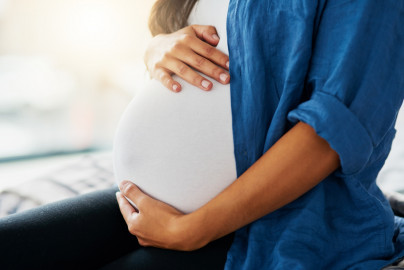Blog

Do Pregnant Women Need to Worry About Coronavirus?
In early 2020, the novel coronavirus outbreak was declared an international health emergency. As more and more cases were reported in the weeks that followed, it became clearer that we were on the doorstep of a global pandemic. Part of what makes novel coronavirus so distressing is that symptoms sometimes don’t appear for up to 14 days, making it difficult to contain and prevent infection.
As with other international health emergencies, viruses can sometimes have specific implications for certain populations. For example, during the Zika virus outbreak of 2016, pregnant women were on extra high alert due to the fact that Zika can be passed along from mother to unborn child, causing severe birth defects such as microcephaly.
Does Coronavirus Impact Babies In Utero?
So far, research indicates that coronavirus is not spread from mother to infant.
In a study published in the medical journal The Lancet, researchers investigated nine pregnant women who had been admitted to a hospital in Wuhan, China, with confirmed cases of COVID-19. All of them gave birth via cesarean section during this time, and each baby was born without any issues. Furthermore, the researchers tested the women’s amniotic fluid, cord blood, and breast milk, all of which tested negative for coronavirus.
While this certainly suggests that pregnant women can relax a little, it should be noted that all nine women in the study were well into their third trimester—there hasn’t yet been any study done on pregnant women in their first trimester.
Does Coronavirus Impact Pregnant Women?
While intrauterine vertical transmission of coronavirus is unlikely, pregnant women still need to be on alert for their own sakes. Pregnancy causes the immune system to constantly fluctuate, which can reduce a woman’s ability to fend off infections in general, including COVID-19. As such, it’s imperative that pregnant women remain extra vigilant.
At this time, the main recommendation from public health officials is to simply practice standard preventive action, including:
- Avoid close contact with people who are sick
- Avoid touching your eyes, nose, and mouth
- Frequently wash your hands with soap and water or an alcohol-based hand sanitizer
- Stay home if you are sick
- Disinfect household objects and surfaces that are frequently touched
- If you are well, the CDC recommends against wearing a facemask, unless you are a healthcare worker or caretaker
If you are pregnant and concerned about your risk for infection or you want to learn more about how you can protect yourself against coronavirus, please contact Pacific Women’s OB/GYN Medical Group.
Back to blog